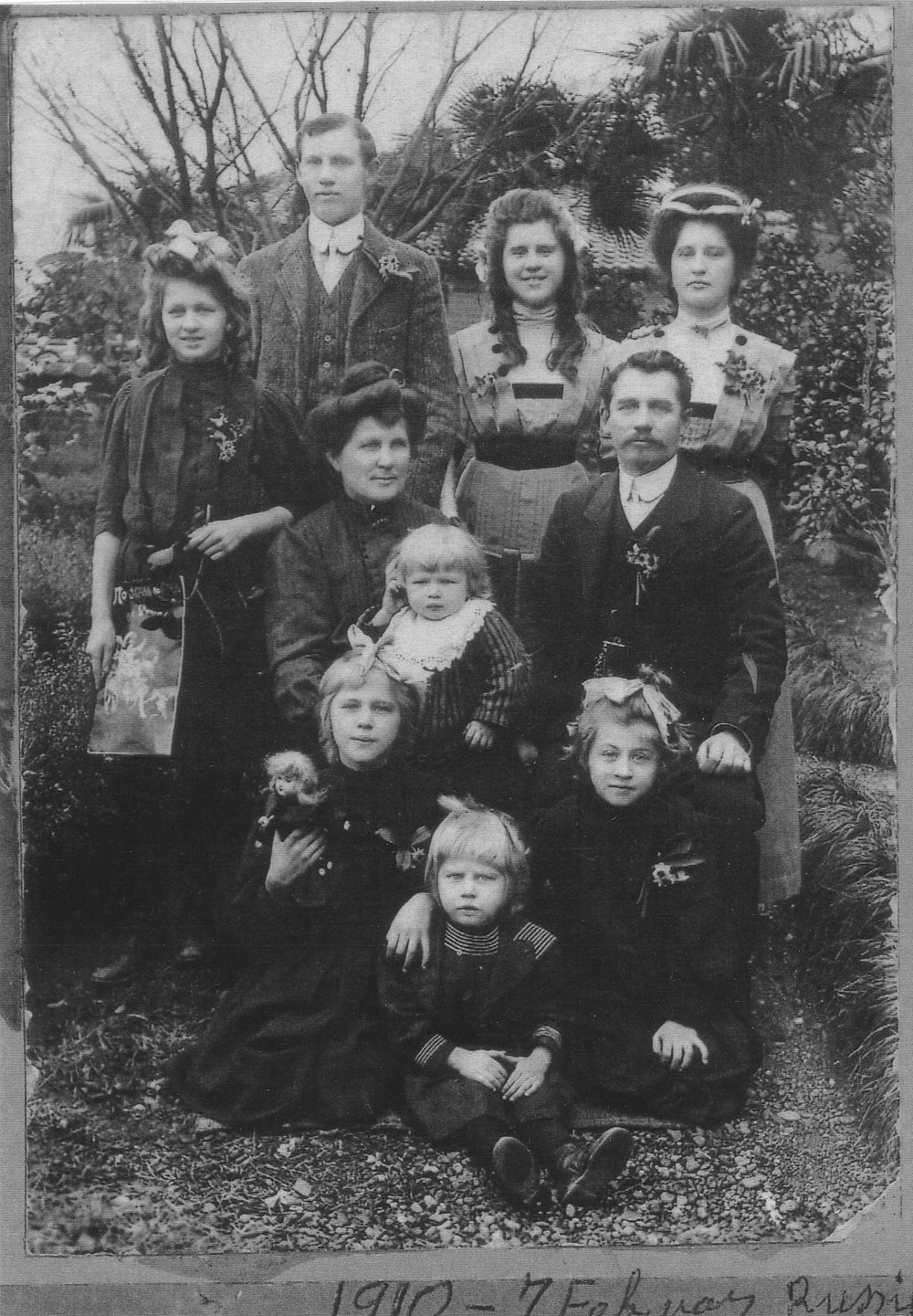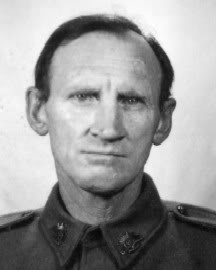Michael Ankudinow
| Alias | George Wilson, alias Callahan |
|---|---|
| Russian spelling | Михаил Георгиевич Анкудинов |
| Born | 1.05.1886 (other variants 1879, 1880, 1885, 1896, 1901) |
| Place | Odessa, Ukraine; also stated St Petersburg and Vladivostok |
| Ethnic origin | Russian |
| Religion | Roman Catholic (?) |
| Father | Zverkov; Stepfather George (Georgy Evseevich) Ankudinov |
| Mother | Aleksandra Petrovna Popova |
| Family | wife Maggie Ankudinow (nee Callaghan), married 1918 in Edinburgh; wife Lillian Ankudinow (nee Crough), married 1940, Victoria |
| Residence before arrival at Australia | Served 4 years in Russian Army, after leaving Russia lived in China (Shanghai) 2 years, Japan 4 years, USA (Seattle) 4 years |
| Arrived at Australia |
from USA on 10.1912 per Killmany disembarked at Port Adelaide |
| Residence before enlistment | Melbourne, Port Adelaide, SA |
| Occupation | AB seaman, labourer |
| Naturalisation | 1941 |
| Residence after the war | Adelaide, Baroota, Port Pirie, SA; Kalgoorlie, Greenbushes, Albany, Chidlow's Well, WA; Prospect, SA, Yalata labour prison, SA; Adelaide, Melbourne, Canberra, Sydney, Melbourne |
| Died | 1951 Heidelberg, Victoria |
Service #1
| Service number | 2280 |
|---|---|
| Enlisted | 20.05.1916 |
| Place of enlistment | Adelaide |
| Unit | 50th Battalion, 43rd Battalion, Australian Provost Corps |
| Rank | Private |
| Place | Western Front, 1916-1918 |
| Casualties | WIA 1917, 1918 |
| Awards | 9.04.1917 MID |
| Final fate | RTA 1920 |
| Discharged | 8.05.1919 in London |
Service #2 – WWII
| Service number | V82372 |
|---|---|
| Enlisted | 23.12.1939 |
| Place of enlistment | South Melbourne, Vic. |
| Unit | 12 Garrison Battalion |
| Rank | Private |
| Discharged | 26.02.1940 |
Service #3 – WWII
| Service number | VX30403 |
|---|---|
| Enlisted | 5.06.1940 |
| Place of enlistment | Royal Park, Vic. |
| Unit | 2/5 Field Ambulance; 2/7 Training Battalion |
| Discharged | 21.12.1940 disch. MU |
Service #4 – WWII
| Enlisted | 26.06.1942 |
|---|---|
| Place of enlistment | Melbourne |
| Unit | Civil Constructional Corps |
| Discharged | 8.09.1942 |
Materials
Naturalisation (NAA)
Digitised WWI service records (NAA)
Digitised Embarkation roll entry (AWM) (Aukudinow)
South Australian Red Cross Information Bureau file
Army pay file (NAA)
Digitised army records (NAA)
WWII service records 1 2 (NAA)
WWII security investigation dossier (NAA)
Digitised Civil Constructional Corps file (NAA)
Personal case file 1 2(NAA)
Blog article
Newspaper articles
A daring robbery. - The Express and Telegraph, Adelaide, 25 March 1920, p. 1.
Stolen trunks. - The Register Adelaide, 31 March 1920, p. 4.
Nine months imprisonment for stealing trunks. - Daily Herald, Adelaide, 5 May 1920, p. 3.
Police court. Adelaide. - The Express and Telegraph, Adelaide, 26 November 1920, p. 1.
Advised to leave Port Pirie. - Barrier Miner, Broken Hill, 27 April 1921, p. 3.
Theft of clothing. - Albany Advertiser, 17 May 1924, p. 3.
Information wanted. - _Sunday Times _, Perth, 17 August 1924, p. 7.
False pretenses and vagrancy. - The West Australian, Perth, 4 October 1924, p. 8.
Couple from the country. - The Daily News, Perth, 4 October 1924, p. 1.
Bogus constable. - The Daily News, Perth, 15 July 1925, p. 8.
Disorderliness. - The West Australian, Perth, 16 August 1928, p. 12.
Razor slashing. Man wounded in Perth. - The West Australian, Perth, 7 August 1929, p. 18.
Slashed with razor. - The Advertiser, Adelaide, 10 August 1929, p. 13.
Slashed with razor. - Mirror, Perth, 10 August 1929, p.1, portr.
Alleged razor-slashing. - The West Australian, Perth, 21 August 1929, p. 8.
Razor slash... - Mirror, Perth, 31 August 1929, p. 1, portr.
"Twas the woman did it!". - Truth, Perth, 8 September 1929, p. 3.
Maggie again. - Truth, Perth, 8 September 1929, p. 2.
From Hospital to Gaol. - The Advertiser, Adelaide, 16 October 1934, p. 6.
Charge against Russian Finn dismissed. - The Advertiser, Adelaide, 11 September 1935, p. 9.
Seaman assaulted at port. - The Advertiser, Adelaide, 11 January 1936, p. 19.
Assault charges against seaman dismissed. - The Advertiser, Adelaide, 14 February 1936, p. 13.
Arrested twice in few hours. - The Mail, Adelaide, 20 March 1943, p. 12.
Timoshenko's nephew, says man in court. - News, Adelaide, 20 March 1943, p. 3.
Marshal Timoshenko's 'nephew'. - The Age, Melbourne, 22 March 1943, p. 5.
From Falling stars: The story of Anzacs from Ukraine:
According to family tales, 'one winter, when he was 16 or 17, Michael became restless and, finding life very restrictive, ran away to sea by joining a tramp ship in Vladivostok Harbour. He was later found to be settled in Australia'.
From Russian Anzacs in Australian History:
The men who dared to take up the challenge of the land were usually those with families. Others, many of them labourers and seamen, were unable to settle down; some remained vagabonds until they died -- these men were unlikely to write their memoirs. The only glimpses of their lives we get are from their occasional, brief communications with the military authorities over such matters as lost badges or discharge certificates -- like Michael Ankudinow writing in 1938 for a replacement copy of his discharge certificate: 'Loss occured on Track shivting camps from one to another state traveling cary a swag looking another camp and jobs'. Before this moment and after it stretched Ankudinow's whole life, about which we know very little. There seemed to be nothing fixed or permanent about it: not his name (he was also known as George Wilson, alias Callahan), nor his place of birth (he freely chose between Vladivostok, St Petersburg and Helsinki), not even his date of birth (I found six different dates between 1879 and 1901!). He served in the Russian army and then went seafaring, spending time in China, Japan and the United States until he landed in South Australia in 1912. Enlisting in the AIF in May 1916, he went to the Western Front in November, and his courage was soon noted, leading to a mention in dispatches. He was wounded at Ypres and then, in April 1918, gassed and invalided to England. Two months later we find him in Edinburgh, marrying an Irish girl called Maggie Callaghan. During his remaining time in the army he was regarded as sufficiently trustworthy to serve in the provost corps but, when the war ended, he wanted to return to Russia, not Australia. 'I am bread and born in Russia', he wrote, 'and I am a Russian subject I am very stranger in Australia. War is over and I want you discharge me in England and sent me back to Russia Vladivostok.'
He didn't get his wish; the Ankudinows ended up in Australia and here Michael's life began to fall apart. His police record has a long list of his crimes, from drunkenness to robbery, and his wife had her problems with the police, too. She returned to Britain and he became a rolling stone -- 'shifting', as he said, from camp to camp, from State to State. In 1940 he was living in the Old Men's House, Mount Royal Park, Victoria, and applied to be naturalised; his police report stated, 'He is somewhat of a wanderer, neglects himself and consequently suffers from lack of suitable food'. Nevertheless, his faultless military service outweighed other considerations and he was naturalised in 1941; by then he had managed to join the 2nd AIF twice -- he probably wanted to repeat the best years of his life, his time in the army.
Gallery

Michael Ankudinow (left, back row) with his family in Vladivostok, ca 1911
Courtesy of Jan Rees

Michael Ankudinow, 1940
WWII service records (NAA)
 Russian Anzacs
Russian Anzacs